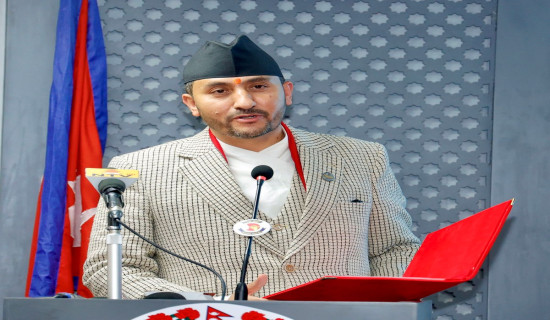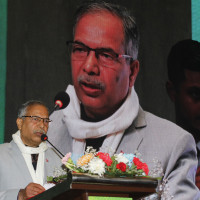- Monday, 19 January 2026
Put Health Before Corporate Greed
When financial gain takes precedence over the well-being of people, the core humanitarian principles of healthcare, environmental care, and other vital services are undermined. This shift can weaken public confidence in institutions, leading to widespread disillusionment with systems intended to prioritise and safeguard the public interest.
The Food and Drug Administration (FDA), Centres for Disease Control and Prevention (CDC) and World Health Organisation (WHO) have a proven track record of advancing public health through initiatives like vaccination campaigns, which have eradicated diseases such as smallpox and significantly reduced others like polio and measles. These achievements underscore the effectiveness of their policies and their dedication to enhancing global health outcomes.
However, recent controversies, including the opioid crisis and debates over COVID-19 vaccination strategies, have challenged public trust in these institutions. These incidents raise critical questions about their decision-making processes, the potential influence of corporate interests and the safeguards in place to ensure that their policies consistently prioritise the public's welfare over other interests.
"Disaster capitalism" refers to the exploitation of crises by corporations for financial gain, sometimes by perpetuating or exacerbating the crisis itself. The opioid epidemic offers a stark example of this dynamic, showcasing how corporate greed can fuel a public health catastrophe. Purdue Pharma, for instance, aggressively promoted opioids like OxyContin, downplaying the risk of addiction to boost sales. As addiction rates soared, the crisis deepened, and companies that profited from selling opioids also began profiting from treatments for addiction and overdoses, such as Naloxone (Narcan), a life-saving medication used to reverse opioid overdoses.
The profit-driven strategy is also leveraging human psychology to encourage continuous consumption and foster a dependency on quick rewards, often at the expense of long-term well-being. During the COVID-19 pandemic, similar concerns arose regarding the substantial profits earned by pharmaceutical companies from both vaccines and treatments. While the rapid development and distribution of vaccines were vital to controlling the virus, the significant revenues generated raised suspicions about the motivations behind the push for booster shots. Some critics questioned whether financial incentives might be influencing recommendations for additional doses, especially in cases where the necessity of boosters was debated.
The National Institute of Allergy and Infectious Diseases (NIAID) under Dr. Anthony Fauci, provided funding to the Wuhan Institute of Virology (WIV) via a grant to EcoHealth Alliance. This funding has fueled debates over whether gain-of-function research, which potentially makes viruses more transmissible or virulent, could have played a role in the origin of COVID-19. Critics, including Senator Rand Paul in his book 'Deception: The Great COVID Cover-up', argue that further investigation is necessary to determine the extent of collaboration and possible obfuscation involving U.S. and Chinese researchers.
While the prevailing hypothesis initially centered on the virus originating in animals and spreading to humans through the wildlife market in Wuhan, the lab-leak theory has gained prominence. The concerns about unchecked capitalism and regulatory capture emphasize the urgent need for greater transparency, more robust regulatory frameworks, and a shift toward prioritizing public health over corporate profit. Addressing these issues requires systemic change, both within regulatory bodies and the wider economic system, to ensure that human well-being takes precedence over corporate profit. Public accountability, transparency, and a focus on socially responsible business practices are crucial for addressing these challenges and restoring trust in institutions.






-original-thumb.jpg)





-original-thumb.jpg)




